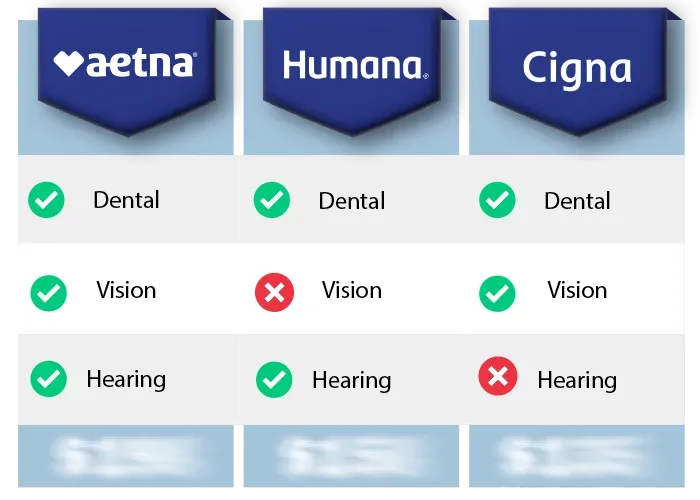
Hearing Aids Covered Under Medicare: Navigating Your Options
Hearing Aids Covered Under Medicare: Navigating Your Options
Hearing loss is a common condition affecting millions of people worldwide, and finding the right support is crucial for maintaining a high quality of life. Medicare, a significant player in the health insurance field, provides various options to assist those dealing with hearing loss. This article delves into the intricacies of understanding how hearing aids are covered under Medicare, shedding light on eligibility, available devices, and essential considerations for making an informed choice.
Understanding Medicare’s Coverage for Hearing Aids
Medicare is a federal health insurance program in the United States designed primarily for people aged 65 and older, as well as for some younger individuals with disabilities. When it comes to hearing aids and related services, it’s imperative to have a clear understanding of what Medicare covers and what falls under your financial responsibility.
Part A and Part B: The Basics
Medicare is divided into different parts, with Part A covering hospital insurance and Part B covering medical insurance. Generally, hearing aids and routine hearing exams are not covered under Part A or Part B. However, if your hearing loss is associated with a medical condition that requires hospitalization or specialized medical attention, some related costs might be covered under these parts.
Medicare Advantage Plans: An Alternative Route
Medicare Advantage Plans, also known as Part C, are offered by private insurance companies approved by Medicare. These plans provide all the benefits of Part A and Part B, and they often include additional coverage, such as vision, dental, and hearing. If you opt for a Medicare Advantage Plan, it’s possible to have partial or full coverage for hearing aids, depending on the specific plan’s terms and conditions.
Key Considerations When Exploring Hearing Aid Coverage
Finding the right hearing aid and understanding your coverage options can be a daunting task. Below are some vital considerations to guide you through this process.
Assessing Your Hearing Needs
Before diving into insurance options, it's crucial to assess your hearing needs. A licensed audiologist can conduct a comprehensive hearing test to determine the extent of your hearing loss and recommend suitable hearing aids.
Exploring Various Hearing Aid Types
Hearing aids come in different styles, each designed to cater to specific preferences and hearing needs. Some of the common types include behind-the-ear (BTE), in-the-ear (ITE), and in-the-canal (ITC) hearing aids. Your choice will depend on factors like the severity of your hearing loss, your lifestyle, and your budget.
Investigating Private Insurance Options
In addition to Medicare Advantage Plans, some private insurance plans offer hearing aid coverage. It's advisable to explore these options, as they might provide more comprehensive coverage or additional benefits that cater to your specific needs.
Utilizing Assistance Programs
Various non-profit organizations and assistance programs aim to help individuals with hearing loss. These programs might offer financial assistance, discounted hearing aids, or other resources to make hearing aids more accessible.
Tips for Making an Informed Decision
Selecting the right hearing aid and understanding your coverage options require careful consideration. Here are some tips to help you make an informed decision:
Consult with Professionals: Engaging with audiologists and healthcare professionals ensures that you receive expert advice tailored to your hearing needs.
Compare Different Plans: Take the time to compare different Medicare Advantage Plans and private insurance options to find the one that best suits your needs.
Read the Fine Print: Pay close attention to the terms and conditions of any insurance plan, understanding the coverage limits, out-of-pocket costs, and any potential hidden fees.
Seek Recommendations: Don’t hesitate to ask for recommendations from friends or family members who have gone through a similar process, as their insights can be invaluable.
Consider Future Needs: Think about your long-term hearing needs and how they might evolve, ensuring that your chosen plan or device can accommodate potential changes.
Conclusion: Empowering Your Auditory Journey
Navigating the world of hearing aids and insurance coverage can be complex, but with the right information and support, you can make a choice that enhances your quality of life. Understanding how hearing aids are covered under Medicare, exploring various coverage options, and considering your specific needs are all crucial steps in this journey. By being proactive and informed, you can ensure that you are making the best decision for your auditory health, now and in the future.

Copyright © 2025 Senior Benefits Guide All Rights Reserved.
204 Church St Suite 1A, Boonton NJ 07005
Disclaimer: This website is not affiliated with the Medicare/Medicaid program or any other government entity. The information provided on this website is for informational purposes only. It is not intended to be, nor does it constitute any kind of financial advice. Please seek advice from a qualified professional prior to making any financial decisions based on the information provided. This website acts as an independent digital media & advertising publisher. This webpage is formatted as an advertorial. An advertorial is an advertisement that is written in an editorial news format. PLEASE BE AWARE THAT THIS IS AN ADVERTISEMENT AND NOT AN ACTUAL NEWS ARTICLE, BLOG, OR CONSUMER PROTECTION UPDATE. This website MAY RECEIVE PAID COMPENSATION FOR CLICKS OR SALES PRODUCED FROM THE CONTENT FOUND ON THIS WEBPAGE. This compensation may affect which companies are displayed, the placement of advertisements, and their order of appearance. Any information, discounts, or price quotations listed may not be applicable in your location or if certain requirements are not met. Additionally, our advertisers may have additional qualification requirements.
Our goal is to provide exceptional service. One of our agents may reach out to you to discuss your order, ask for feedback, and/or see if you need any assistance with your products, services, or plans, at the phone number you provided regardless of your do-not-call list status. You may opt-out of further contact at any time by simply telling our customer service team that you would no longer like to be contacted. In the event that our team is unable to reach you by phone, they may send you a text message letting you know that we called. Both our text messages and phone calls may be sent or connected utilizing automated software. Carrier charges may apply. You may opt-out of any future contact via text message by replying anytime with "STOP".
Copyright © 2025 All Rights Reserved.
Find Medicare Advantage Plans in 3 Easy Steps

